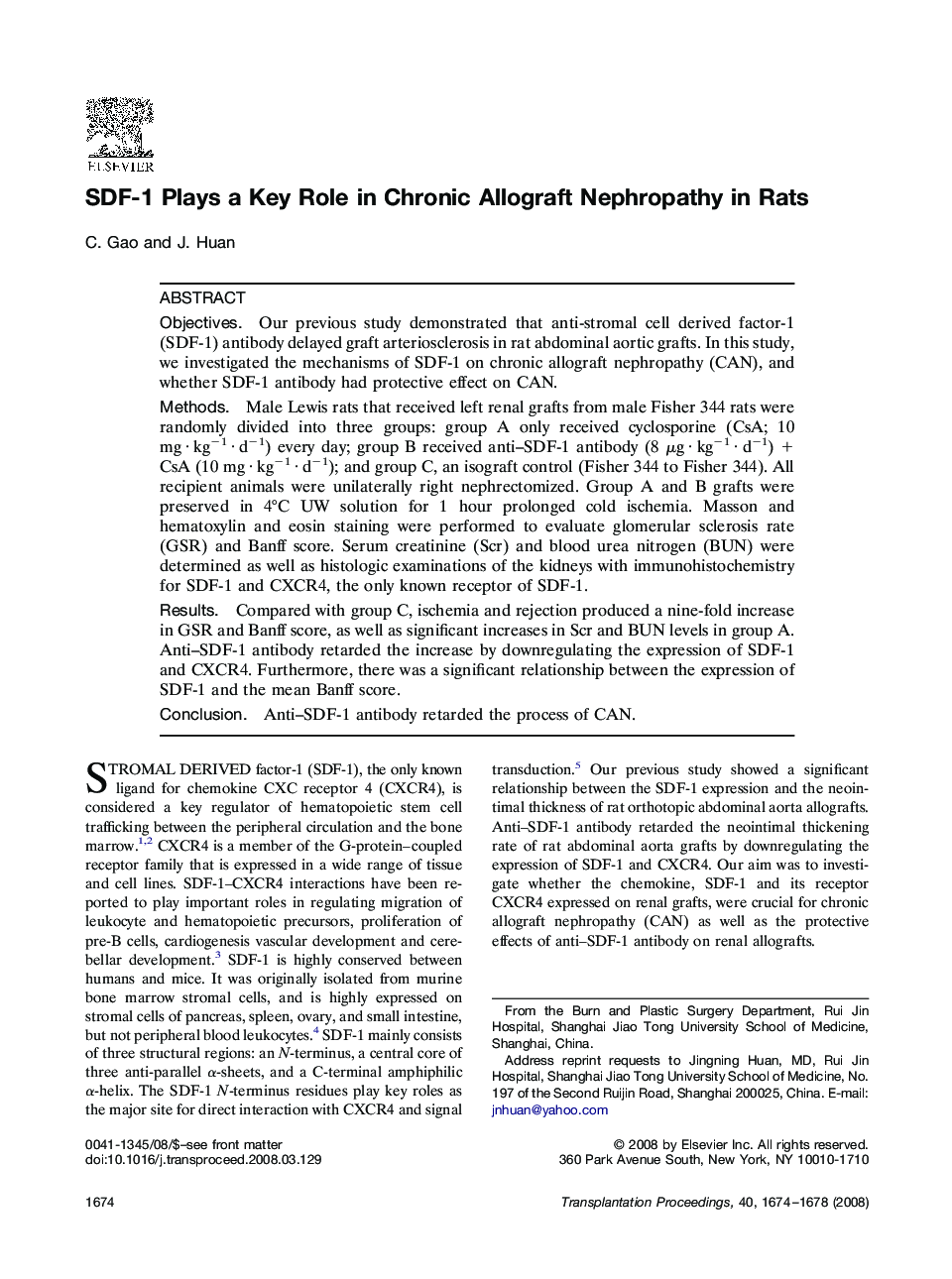| Article ID | Journal | Published Year | Pages | File Type |
|---|---|---|---|---|
| 4258282 | Transplantation Proceedings | 2008 | 5 Pages |
ObjectivesOur previous study demonstrated that anti-stromal cell derived factor-1 (SDF-1) antibody delayed graft arteriosclerosis in rat abdominal aortic grafts. In this study, we investigated the mechanisms of SDF-1 on chronic allograft nephropathy (CAN), and whether SDF-1 antibody had protective effect on CAN.MethodsMale Lewis rats that received left renal grafts from male Fisher 344 rats were randomly divided into three groups: group A only received cyclosporine (CsA; 10 mg · kg−1 · d−1) every day; group B received anti–SDF-1 antibody (8 μg · kg−1 · d−1) + CsA (10 mg · kg−1 · d−1); and group C, an isograft control (Fisher 344 to Fisher 344). All recipient animals were unilaterally right nephrectomized. Group A and B grafts were preserved in 4°C UW solution for 1 hour prolonged cold ischemia. Masson and hematoxylin and eosin staining were performed to evaluate glomerular sclerosis rate (GSR) and Banff score. Serum creatinine (Scr) and blood urea nitrogen (BUN) were determined as well as histologic examinations of the kidneys with immunohistochemistry for SDF-1 and CXCR4, the only known receptor of SDF-1.ResultsCompared with group C, ischemia and rejection produced a nine-fold increase in GSR and Banff score, as well as significant increases in Scr and BUN levels in group A. Anti–SDF-1 antibody retarded the increase by downregulating the expression of SDF-1 and CXCR4. Furthermore, there was a significant relationship between the expression of SDF-1 and the mean Banff score.ConclusionAnti–SDF-1 antibody retarded the process of CAN.
